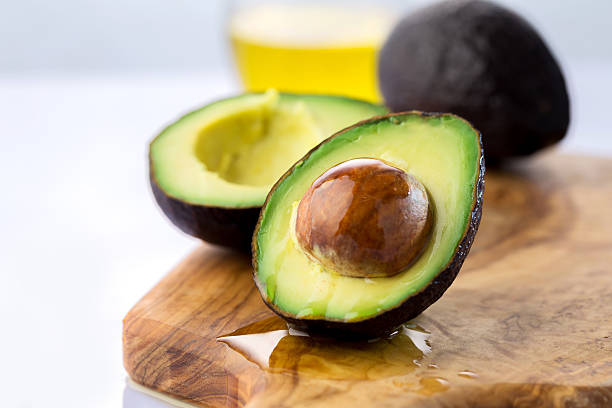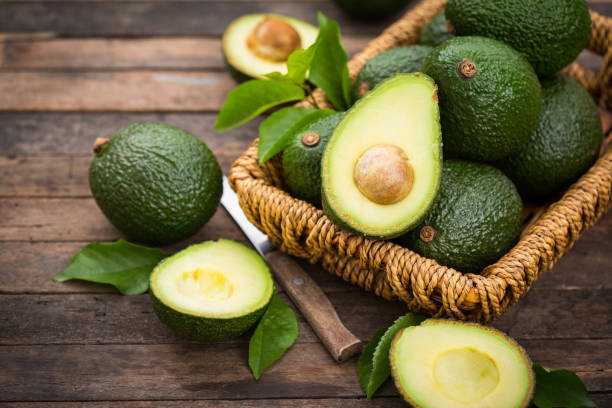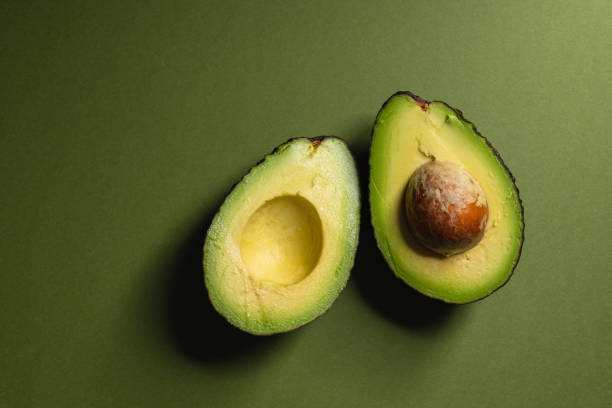Avocado is a popular fruit that is known for its creamy and rich taste, as well as its numerous health benefits. However, one question that often comes up when discussing avocados is how many calories they contain. In this article, we will take an in-depth look at the calorie content of avocados, as well as some of the factors that can affect their calorie content.
First, let’s look at the basic nutritional information for avocado. One medium-sized avocado (about 200 grams) contains approximately 234 calories. This is a significant number of calories, particularly when compared to other fruits. For example, a medium apple contains only 95 calories, while a medium banana has 105 calories. However, it’s important to note that the calorie content of avocado is largely due to its high fat content, which is primarily made up of monounsaturated and polyunsaturated fats. These types of fats are considered to be “good” fats, as they can help to lower cholesterol levels and reduce the risk of heart disease.
According to the United States Department of Agriculture (USDA), the average caloric content of an avocado is 234 calories per 100 grams. This means that a medium-sized avocado, which is about 200 grams, contains around 468 calories.
It is worth noting that this calorie content is for a raw, fresh avocado. If you are consuming avocado in a prepared dish, such as avocado toast or guacamole, the calorie content may be higher due to the addition of other ingredients, such as cheese, oil, or salt.
The calorie content of avocados can also vary based on the variety of avocado. For example, the Hass avocado, which is the most common variety found in supermarkets, has a slightly higher calorie content than other varieties, such as the Fuerte or Pinkerton avocados. This is due to the fact that Hass avocados tend to be larger and have a higher fat content than other varieties.
In addition to variety, the stage of ripeness can also affect the calorie content of avocados. As avocados ripen, their fat content tends to increase, which can result in a higher calorie content. For example, a fully ripe avocado may have a slightly higher calorie content than a less ripe avocado of the same size and variety.
While the calorie content of avocados may seem high, it is important to keep in mind that the calories in avocados come primarily from healthy monounsaturated fats. These types of fats have been shown to have numerous health benefits, including reducing the risk of heart disease and improving cholesterol levels.
Despite its high calorie and fat content, avocado can still be part of a healthy eating plan. The key is to incorporate it in moderation, as part of a balanced diet that includes a variety of foods from all food groups. Here are a few tips for adding avocado to your diet in a healthy way:
Use avocado as a replacement for less healthy fats. Avocado can be used in place of butter, mayonnaise, or other high-fat spreads in sandwiches, wraps, and other dishes. This can help to reduce the overall calorie and fat content of your meals.
Add avocado to salads and other dishes for a boost of nutrients. Avocado can be diced and added to salads, sandwiches, and other dishes for a boost of fiber, potassium, and other nutrients.
Use avocado as a topping or garnish. Avocado can be sliced and used as a topping for toast, eggs, or other dishes, or mashed and used as a garnish for soups and other dishes. This allows you to enjoy the flavor and nutrients of avocado without consuming large amounts of it.
Avocados are also a good source of fiber, with about 7 grams of fiber per medium-sized avocado. Fiber is important for maintaining a healthy digestive system and can help to keep you feeling full and satisfied.
In addition to its high calorie content, avocado is also a good source of several essential nutrients. It is rich in fiber, with about 12 grams per medium avocado, which is about half of the recommended daily intake for adults. Avocado is also a good source of potassium, with about 975 milligrams per medium avocado, which is nearly one-third of the recommended daily intake for adults. It is also a good source of vitamin K, with about 60 micrograms per medium avocado, and vitamin E, with about 2.7 milligrams per medium avocado.
Given all of these health benefits, it is clear that avocados can be a nutritious and satisfying addition to a well-balanced diet. However, as with any food, it is important to consume avocados in moderation and to consider the calorie content when planning your meals and snacks.
One way to incorporate avocados into your diet in a healthy way is to use them as a replacement for less healthy fats, such as butter or mayonnaise. For example, you can mash avocado and use it as a spread on toast in place of butter, or use it to make a healthier version of tuna salad by mixing mashed avocado with canned tuna and a few vegetables.
Another option is to slice avocado and add it to salads or sandwiches as a way to add creaminess and flavor without a lot of extra calories. You can also dice avocado and add it to soups or stews for a rich, creamy texture.
In terms of their calorie content, avocados are relatively high in calories compared to other fruits. For example, a small avocado contains around 80-100 calories, while a medium-sized apple contains around 95 calories. However, it’s important to note that the calories in an avocado are primarily coming from healthy fats, which can be an important part of a balanced diet.
So, if you’re wondering how many calories are in an avocado, the answer is that it depends on the size of the avocado. However, it’s important to remember that the majority of the calories in an avocado are coming from healthy fats, and that avocados are a rich source of nutrients that can be beneficial for overall health. Whether you’re looking to add some healthy fats to your diet or simply want to enjoy the delicious taste of avocado, this fruit is a great choice. So, it is always better to include avocado in your diet to get all the benefits it has to offer.

 Home
Home Health
Health Diet & Nutrition
Diet & Nutrition Living Well
Living Well More
More













